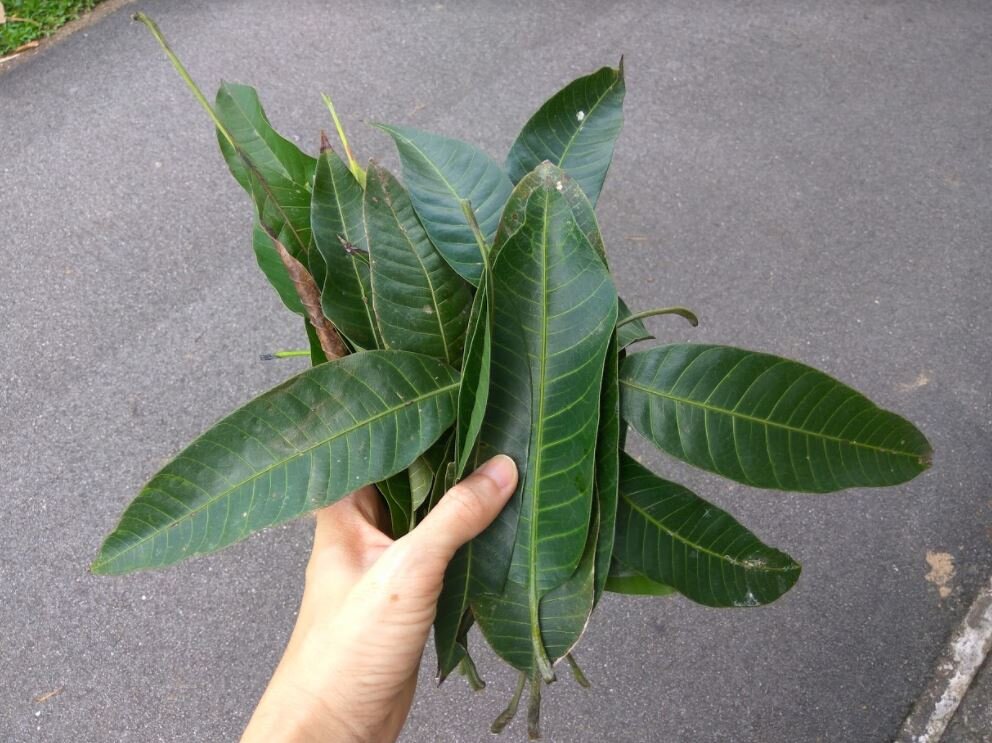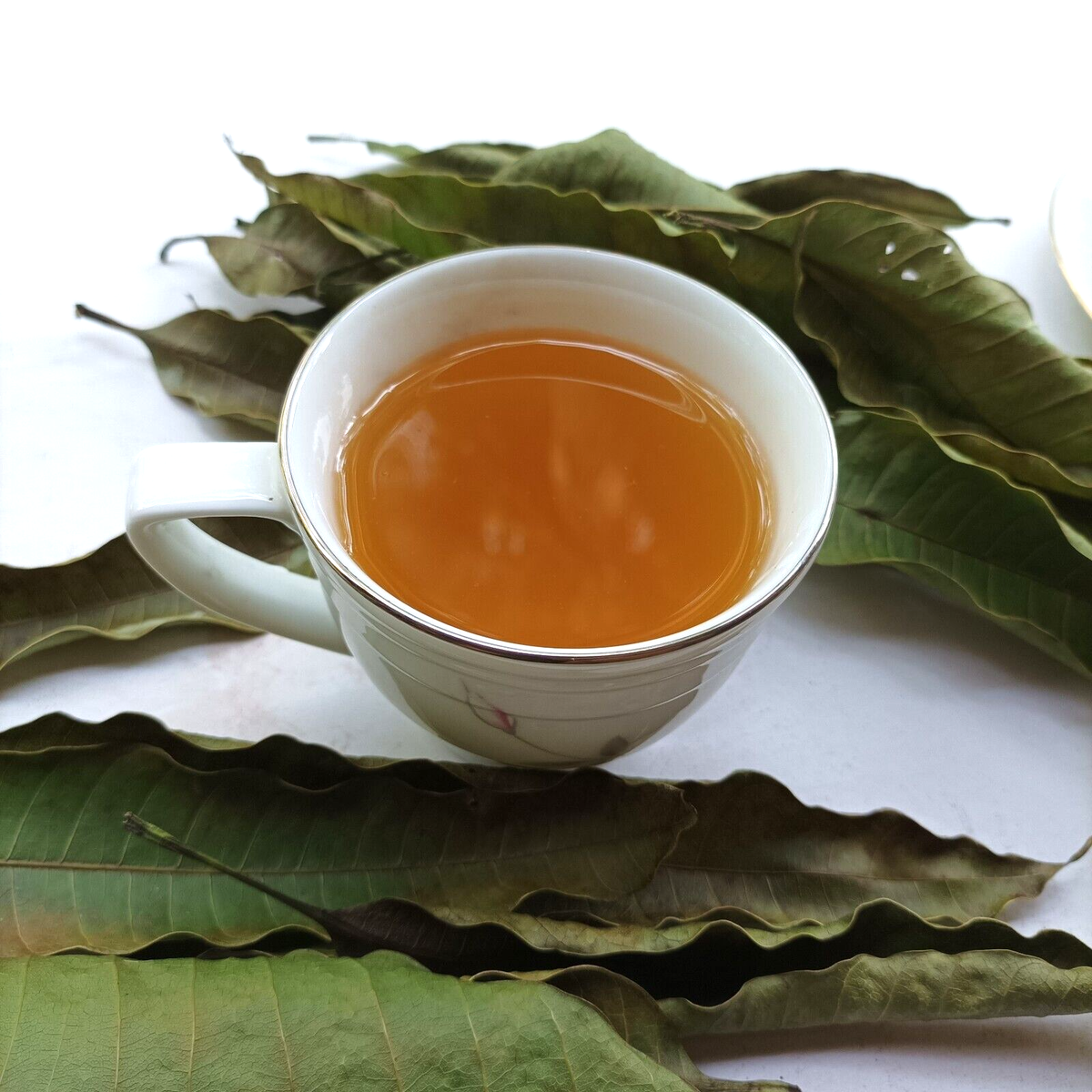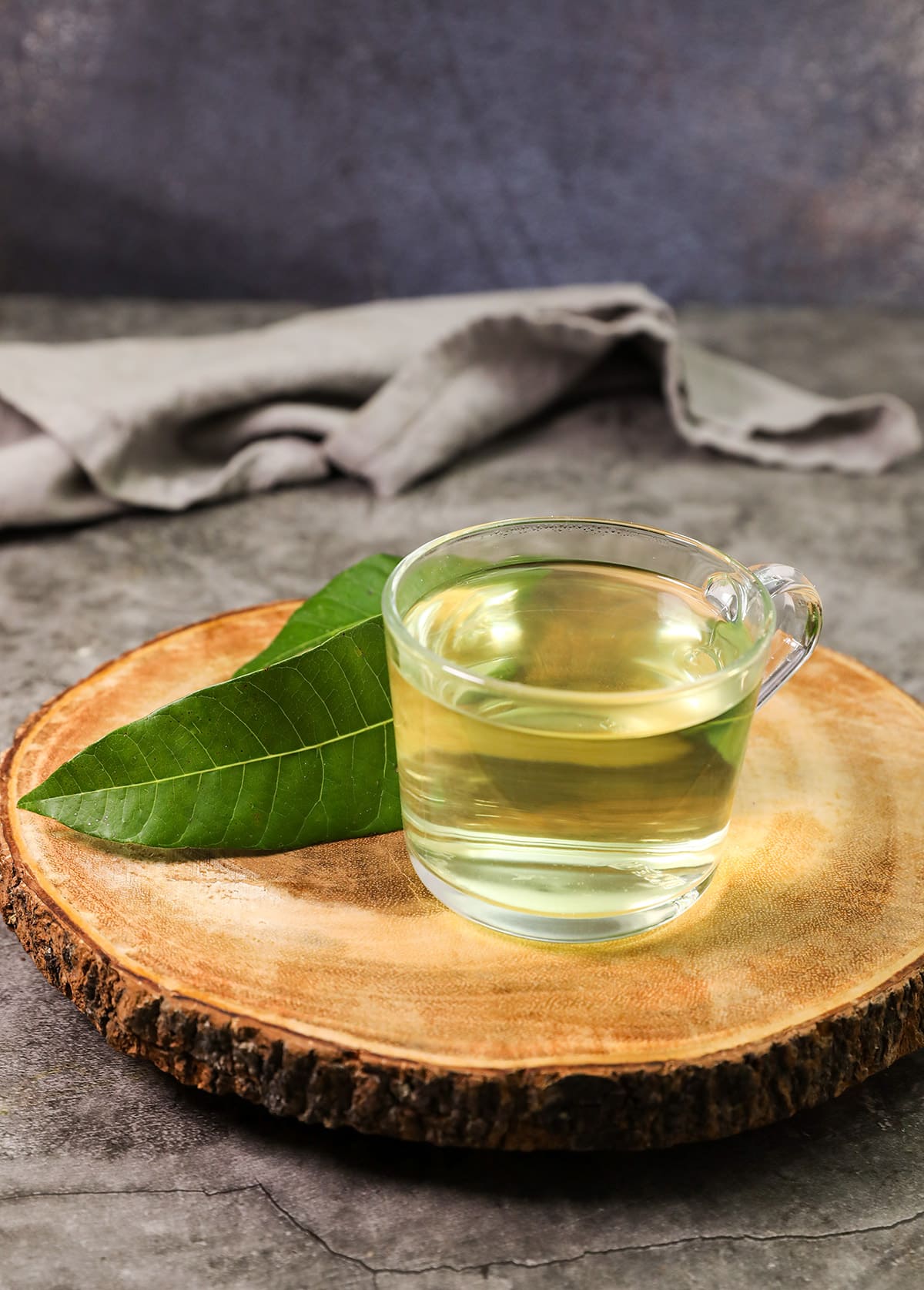Mango leaves are often overlooked in favor of the fruit, but they are packed with essential nutrients and antioxidants, making them a valuable addition to your health routine. This lesser-known herbal tea has been used in traditional medicine for centuries for its medicinal properties.
Rich in active compounds, mango leaf tea offers a range of health benefits. Mangiferin, a potent antioxidant, along with flavonoids and phenolic acids, gives the tea its anti-inflammatory and immune-boosting effects. Additionally, this herbal tea aids in supporting blood sugar control and improving digestion.
This article explores why mango leaf tea deserves its name a hidden gem for health and wellness and provides practical ways to enjoy this herbal tea for a healthier you. If you are looking for a potent herbal to add to your daily routine, mango tea is sure to help.
The Origins and Cultural Significance of Mango Leaf Tea
With its origins in tropical regions including India, Southeast Asia, and Africa, mango leaf tea has been used to treat various ailments for centuries. In Ayurvedic and folk medicine, this herbal tea is a go-to remedy for digestive issues, respiratory problems, and even blood sugar regulation. The mango tree (Mangifera indica), well-known for its juicy fruit, produces glossy green leaves that are carefully harvested, dried, and brewed into tea.

Nutritional Composition of Mango Leaves
Mango leaves are an excellent source of beneficial compounds. They are rich in vitamins A, C, and E, which help boost the immune system. The leaves also contain essential minerals like potassium and magnesium, which support heart health. Additionally, antioxidants and flavonoids found in mango leaves help protect the body from oxidative stress and inflammation.
Health Benefits of Mango Leaf Tea
Mango leaf tea offers a variety of health benefits that make it a valuable addition to your wellness routine:
1. Supports Blood Sugar Control
Mango leaf tea is excellent for balancing blood sugar levels, potentially acting as a natural aid for individuals with diabetes or pre-diabetes.
The tannins called anthocyanins found in mango leaves are key in managing early diabetes symptoms by improving insulin sensitivity and glucose metabolism. These compounds help regulate the absorption of sugar in the bloodstream, preventing drastic spikes in blood sugar levels after meals.
Moreover, mango leaves contain compounds that promote the regeneration of pancreatic cells, further supporting insulin production and overall blood sugar control. Regular consumption of mango leaf tea, combined with a healthy diet and lifestyle, may significantly reduce the risk of diabetic complications.
2. Rich in Antioxidants
Mango leaves are loaded with polyphenols and terpenoids, which combat free radicals that cause cell damage.

These antioxidants may also reduce the risk of cancer and other chronic diseases by neutralizing harmful free radicals and preventing oxidative stress.
3. Supports Digestive Health
Mango leaves contain enzymes like papain and compounds such as leptin, which aid digestion and regulate fat accumulation.
Drinking mango leaf tea can help reduce bloating, gas, and constipation by promoting the breakdown of food and supporting a healthy gut microbiome. This can be particularly beneficial for individuals experiencing indigestion or irritable bowel syndrome (IBS). Additionally, mango leaves possess anti-inflammatory properties that can soothe the digestive tract and alleviate discomfort.
Some research suggests that mango leaves may help prevent and treat stomach ulcers due to their protective effects on the gastric lining.
4. Improves Heart Health
Mango leaves contain hypotensive properties that can help lower blood pressure and strengthen blood vessels, reducing the risk of heart disease.
Mango leaf tea is rich in antioxidants that protect against oxidative stress, a major contributor to cardiovascular disease. These antioxidants help prevent the buildup of plaque in the arteries, reducing the risk of atherosclerosis and other heart-related conditions.
Furthermore, some active compounds in mango leaves can promote healthy cholesterol levels, lowering LDL (“bad”) cholesterol and increasing HDL (“good”) cholesterol. This can significantly reduce the risk of heart attacks and strokes, making mango leaf tea a potent remedy for individuals with heart-related conditions.
5. Improves Skin Health
Drinking mango leaf tea or directly applying it to heal burns, rashes, and signs of aging. Its anti-inflammatory properties can improve overall skin health.

With its high antioxidant content, mango tea can help promote wound healing and collagen production.
6. Boosts Hair Health
Mango leaf tea is a great source of essential nutrients and antioxidants that can help promote healthy hair growth and reduce the risk of common hair problems. Flavonoids in mango leaves delay the premature graying of hair. Flavonoids are powerful antioxidants that help protect the hair follicles from damage caused by free radicals, which can lead to premature graying.
Moreover, mango leaves are rich in vitamins C and vitamins A, which promote collagen production for healthy hair growth. Vitamin C is essential for the production of collagen, a protein that helps give structure to the hair follicles. Vitamin A, on the other hand, helps regulate the growth cycle of hair and promotes the development of healthy hair follicles.
7. Anti-Inflammatory Properties
Mango leaf tea possesses potent anti-inflammatory properties, which can help fight inflammation in the body. Chronic inflammation is a main cause of various diseases, including arthritis, diabetes, cardiovascular disease, and even Alzheimer’s disease.
Studies have shown that mango leaf tea’s anti-inflammatory properties can help reduce inflammation and oxidative stress in the body. A study published in the Journal of Ethnopharmacology found that mango leaf extract exhibited significant anti-inflammatory activity, reducing inflammation and oxidative stress in rats with colitis.
Another study published in the Journal of Medicinal Food found that mango leaf tea reduced inflammation and improved cognitive function in mice with Alzheimer’s disease.
How to Make Mango Leaf Tea
Making mango leaf tea is simple and requires minimal ingredients:
Ingredients:
- 5–6 fresh or dried mango leaves
- 2 cups of water
- Honey or lemon (optional)
Instructions:
- First, boil 2 cups of water in a pot.
- Second, wash the mango leaves thoroughly.
- Next, add the mango leaves to boiling water and let them simmer for 5–10 minutes.
- Once done, remove the pot from heat and let it cool slightly.
- Finally, strain the tea into a cup and enjoy. You can add honey or lemon for additional flavor and health benefits.

Precautions When Using Mango Leaf Tea
While mango leaf tea is generally safe for consumption, there are a few precautions to keep in mind:
Individuals who are allergic to plants or herbs should avoid consuming mango leaves.
Consume mango leaf tea in moderation, from 1–2 cups per day to prevent digestive discomfort.
Pregnant women or people with chronic conditions should consult a healthcare provider before adding mango leaf tea to their daily routine.
Conclusion
Mango leaf tea provides a simple yet effective way to boost overall health. From controlling blood sugar to improving digestion to promoting weight loss, this potent herbal tea is a delightful addition to any wellness routine. By incorporating mango leaf tea into your daily life, you can harness its full potential and enjoy the rewards of a healthier, happier lifestyle.







